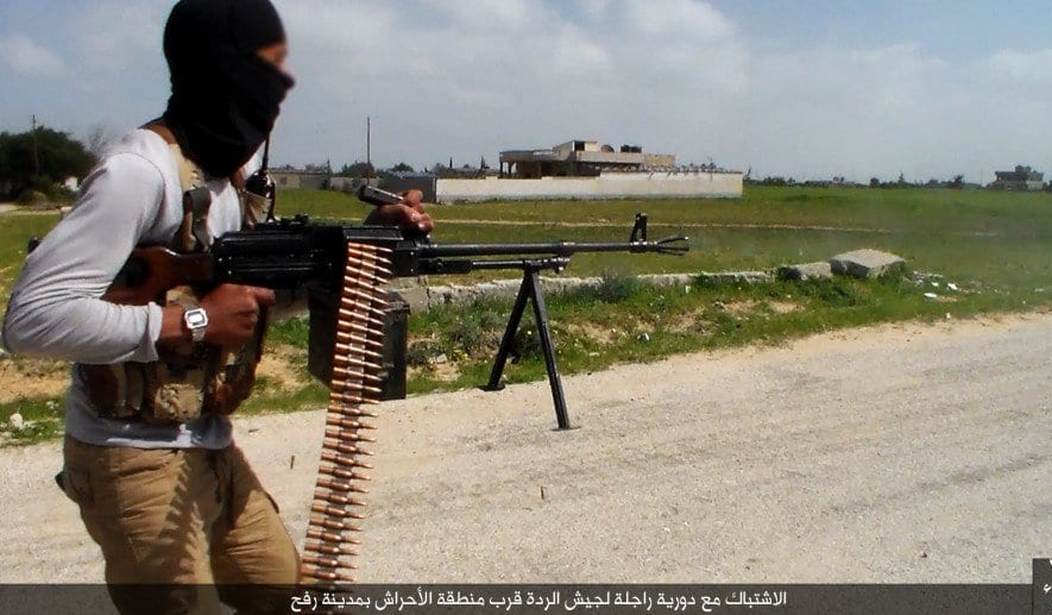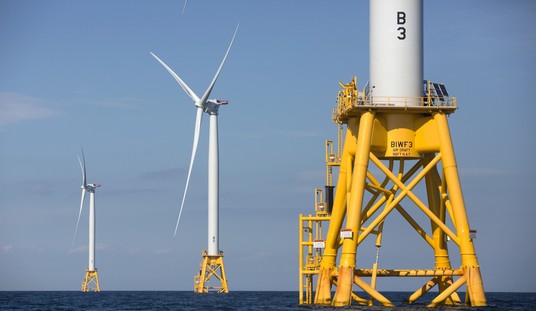The director of the Defense Intelligence Agency warned Congress today that “the outcomes in the next several years will be decisive for our nation” thanks to a world “far more” destabilized and complex “than at any time that I’ve seen it.”
Lt. Gen. Vincent Stewart told the House Armed Services Committee that ISIS “has become the most significant terrorist threat to the United States and our allies” with global expansion capable of “spectacular external attacks” to demonstrate the terror group’s “relevance and reach.”
“ISIL will probably to attempt to conduct additional attacks in Europe and attempt to direct attacks on the United States homeland in 2016,” Stewart said, as “the large number of Western jihadists in Iraq and Syria will pose a challenge for Western security services.”
Russia, meanwhile, “continues to pursue aggressive foreign and defense policy, including conducting operations in Syria, sustaining involvement in the Ukraine, and expanding military capabilities in the Arctic.”
China is “pursuing a long term, comprehensive military modernization program to advance its core interests.”
“China has the world’s largest and most comprehensive missile force and has prioritized the development and deployment of regional ballistic missiles and cruise missiles to expand its conventional strike capabilities against the United States forces in the region. And they field an anti-ballistic missile that provides the capability to attack U.S. aircraft carriers in the western Pacific Ocean,” Stewart told lawmakers. “China also displayed a new, intermediate range ballistic missile capable of striking Guam, during the September 2015 military parade in Beijing.”
“North Korea’s nuclear weapons programs are evolving, and evolving ballistic missile programs are a continual threat… North Korea also continues efforts to expand its stockpile of weapons grade fissile material.”
The general called the confluence of these threats “just a range of global actions that we simply are — we’ve not seen the likes of which in certainly my time as I’ve served.”
Maj. Gen. James Marrs, director of intelligence for the Joint Staff, added that Russia and China have been displaying “just a breadth of capabilities from strategic systems to anti-access area denial to even, I would say, a growing adeptness at operating just short of traditional military conflict that is posing a significant challenge in the future.”
Marrs pinpointed three troubling trends contributing to “a very, very unstable condition in our world today”: “Resurgence of competitive nation states that compete against our interests. Breakdown of traditional nation states generates ungoverned space, generates conflict that we’re not quite sure how that will play out. And then the ability for emerging states or even non-state actors to have access to disruptive technology that’s readily available across a wide range of networks.”
Stewart stressed that China “presents itself as a peaceful” player on the world stage to “regain its status.”
The People’s Republic role in the new international order could be anything but.
“We’re not so certain that that rise will be peaceful because of some of the things that it’s doing in the Pacific and globally,” the DIA chief said.
The agency also faces the challenge of having analysis in place so that “we are not caught blind looking at Russia and Iran and North Korea and miss some event.”
“Much of the things that we are seeing today, we saw the precursors of those things in 2009, ’10, ’11 and have now just manifested themselves on the international stage,” Stewart noted.
“There are some trends there that would indicate that we would be headed for troubling times if we did not reverse or counter a growing Russian military modernization, a more assertive and aggressive China in the Pacific, the break down of some of these states in the Middle East, the competition between Iran and Saudi Arabia, the possibility that ISIL would establish or attempt to establish the caliphate,” he added. “All of those precursors were there, they’re just now full grown in the last three to five years.”
Stewart was asked about biowarfare risks, but requested that his answers wait for the closed sessions he held with lawmakers after the open hearing.
The general also warned that sanctions on Iran’s ballistic missile program, which was not included in the nuclear deal and has been expanding since the P5+1 deal was signed, are likely to have no effect on the Islamic Republic.
“Our sanctions in the past have not kept the Iranians from developing the most sophisticated ballistic missile capability in the region capable of reaching all of their potential adversaries capable of reaching into Europe,” Stewart said. “They have not only built a very robust missile technology, they’ve improved their accuracy, they’ve improved their mobility.”
“I don’t see them changing that trajectory because their missile capability is a way to confuse, confound our actions and it’s a guarantee for the regime, so I don’t see sanctions changing that trajectory at all,” he predicted. “I think as we lift sanctions there’s increasing likelihood that they will find ways to improve lethality, ability, range of all of their missile systems.”
He also told the committee that there are no indications Russian President Vladimir Putin “will not be here through 2016 and beyond.”
“The Russian people have a tendency to bear more suffering and pain than most of us are willing to accept,” Stewart noted, stressing that Putin controls the propaganda narrative so that Russians “believe he’s a strong and forceful leader, believe he’s put Russia in the rightful place where it should stand on the international stage and the economy is painful but it’s worth enduring because we are now a dominant power.”








Join the conversation as a VIP Member